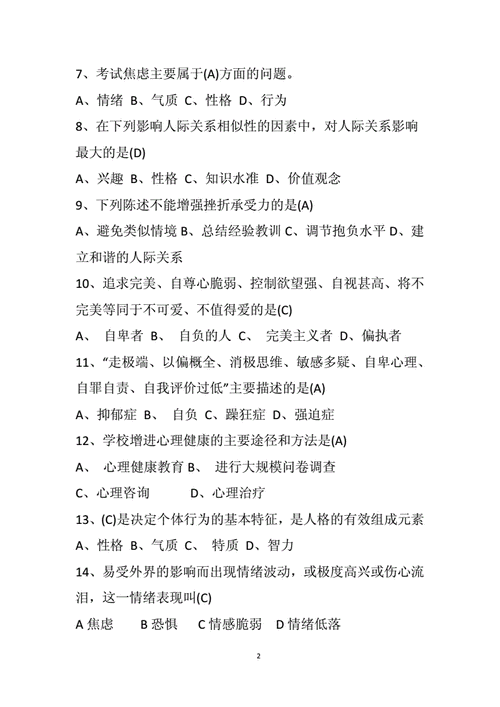Question1:Explaintheconceptofcognitivedissonanceandprovideanexample.
Psychology Exam Questions
Cognitive dissonance is the mental discomfort or stress experienced by an individual who holds two or more contradictory beliefs, ideas, or values simultaneously. This inconsistency creates a feeling of discomfort that the individual seeks to resolve by either changing their beliefs or justifying their behavior. For example, a person who smokes cigarettes (despite knowing the health risks) may experience cognitive dissonance. They may either quit smoking to align their behavior with their knowledge of the health risks, or they may justify their smoking by convincing themselves that the health risks are exaggerated.
Sleep consists of several stages that cycle throughout the night. The stages of sleep include:
Classical conditioning is a type of learning in which an organism learns to associate a neutral stimulus with a meaningful stimulus. Over time, the neutral stimulus alone can evoke the response that was originally caused by the meaningful stimulus. A classic example of classical conditioning is Pavlov's experiment with dogs. In this experiment, Pavlov paired the sound of a bell (neutral stimulus) with the presentation of food (meaningful stimulus) to make the dogs salivate. Eventually, the dogs started salivating at the sound of the bell alone, demonstrating classical conditioning.
Stress can have a significant impact on mental health, leading to anxiety, depression, and other psychological issues. Chronic stress can also weaken the immune system and contribute to physical health problems. Effective coping strategies for managing stress include:

- Practicing relaxation techniques such as deep breathing or meditation
- Engaging in regular physical exercise
- Maintaining a healthy diet and getting adequate sleep
- Seeking social support from friends, family, or a therapist
- Setting realistic goals and priorities to reduce feelings of overwhelm
The bystander effect is a social phenomenon where individuals are less likely to offer help to a victim when other people are present. This diffusion of responsibility occurs because individuals assume that someone else will take action, leading to inaction on the part of the bystanders. To combat the bystander effect and promote helping behavior, it is important to raise awareness of the phenomenon, encourage individual responsibility, and provide bystander intervention training.
